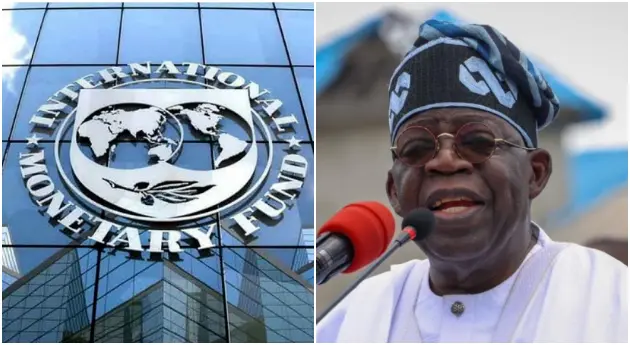
IMF Urges Nigeria To Expand ‘Cash Transfer’ Program To Cover Rural Areas

The International Monetary Fund (IMF) has urged the Nigerian government to expand its cash transfer program to include rural communities affected by food insecurity amid rising poverty.
As recommended, this was disclosed during a recent press briefing by Julie Kozack, Director of Communications at the IMF.
According to the recommendation published on the IMF’s official website, Kozack highlighted the importance of expanding the cash transfer program, especially in ensuring reaching the local communities with support.
While this recommendation tends to reach the vulnerable, the IMF has advised for such expansion before.
In early 2024, the IMF, through the Assistant Director of the African Department and Mission Chief to Nigeria, Axel Schimmelpfennig, stressed the need to help the vulnerable following the introduction of the economic reform by President Bola Tinubu.
On fiscal policy, we very much recognise the pain that many Nigerians are facing at the moment. Hence, our emphasis is on scaling up the cash transfer programme. It can reach up to 50 million recipients, potentially benefiting some 65 million Nigerians in need, Schimmelpfennig stated.
IMF’s recent reiteration of the cash transfer program by Kozack highlighted the strain difficulties Nigerians are experiencing due to the recent floods amid the country’s food insecurity crisis.
Our thoughts are with the Nigerian people, especially those that are most affected by the devastating floods that occurred from exceptionally heavy rains, Kozack said.
Meanwhile, following the recent flood in Borno State, the Nigerian government has announced the provision of funds to the state affected, with public criticism stemming from the perspective urging the government to fix the Alau Dam instead of the usual donation of rice to Nigerians in time of crisis.
Read: Lagos Boarding School Fee Increment is Illegal – Human Rights Lawyer Falana
- No Monetary Value From Gold Is Worth Our Lives, Says Ghana’s TUC Vice
- Flood Destroys Farmlands, Houses In Ebonyi State, Affects At Least 96 Households
About The Author
Mayowa Durosinmi
author
M. Durosinmi is a West Africa Weekly investigative reporter covering Politics, Human Rights, Health, and Security in West Africa and the Sahel Region
Mayowa Durosinmi
M. Durosinmi is a West Africa Weekly investigative reporter covering Politics, Human Rights, Health, and Security in West Africa and the Sahel Region
Related Articles
Tinubu Government Delays Release of Signed Tax Acts to the Public
Four days after President Bola Tinubu announced the signing of four tax...
ByMayowa DurosinmiJune 30, 2025As Tinubu Urges Africa-Caribbean Unity in Saint Lucia, Over 272 Nigerians Killed in June Alone
While Nigerians deal with deadly violence, worsening hunger, and mass flooding, President...
ByWest Africa WeeklyJune 30, 2025You Can’t Tax a Dead Economy: Nigeria Is Suffocating Under Its Own Policies
As Nigeria’s Central Bank clings to its benchmark interest rate of 27.5...
ByWest Africa WeeklyJune 30, 2025“Wike is Not a Blessing to Us, He’s a Disaster” — Workers Protest in Nigeria’s Capital Over Unpaid Wages, Poor Working Conditions
Staff members of the Federal Capital Territory Administration (FCTA) in Abuja barricaded...
ByOluwasegun SanusiJune 30, 2025











